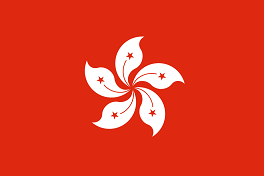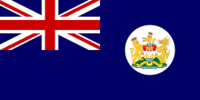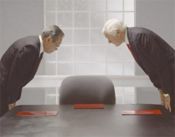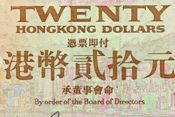Hong Kong Gift Giving Customs
From Giftypedia
Flag of Hong Kong
Capital: There is no capital. Hong Kong is part of China.
Official Name: Hong Kong Special Administrative Region of the People's Republic of China
Languages: English and Chinese are Hong Kong's two official languages. Cantonese is the most common dialect.
Currency: Hong Kong Dollar (HKD) (HK$) aka "Hongkie"
Drive on which side? Left
Nickname for City: Pearl of the Orient, Asia's World City, Gateway to China
Nickname for Resident: Hong Konger
National Holiday: July 1 - Hong Kong Special Administrative Region Establishment Day[1]
Before scheduling a visit or meeting in Hong Kong, check for public holidays[2]. Many are similar to Chinese Holidays, while others are former British holidays that have been renamed.
History
Hong Kong became a dependent territory of the United Kingdom in 1842, and remained so until transfer of sovereignty of Hong Kong to the People's Republic of China in July 1997. Hong Kong is largely self-governing; it has its own currency, legal and political systems.[3]
Business Gift Giving Etiquette
Proper gift exchange protocol in Hong Kong is to always use both hands. When receiving a gift, do not open it in front of giver. Some Asian forms of gift wrapping actually show what is inside, so opening it is not necessary.
Business gifts are always reciprocated. Not to do so is considered bad etiquette.
Greeting Others in Hong Kong
Names are usually written in the following order - the last name first, middle name second and the first name last. Use titles with names whenever possible[4].
A handshake is a common greeting in Hong Kong. A bow may be combined with a handshake or performed before or after shaking hands.[5]
A round of applause may greet you during your visit. The Chinese like to applaud. You are expected to return the applause out of respect.
Business Cards
Always exchange business cards using both hands. Hand your card so the typeface faces the recipient.
It is important to treat business cards with respect. Always look at a card thoughtfully before putting it in a away coat pocket or holder. Never write on someone's card or place it in a back pocket.
Have one side of your business card translated into Chinese, with the Chinese characters printed in gold, since this is an auspicious color.
Keep your business card simple. All the receiver needs to know is who you are, your title, your company and how to contact you. The rest is superfluous[6].
Tipping
Most hotels and restaurants will automatically add 10% for service to the bill.
Small tips may also be given directly to bellboys, doormen and washroom attendants. HK$10 or HK$20 should suffice.
With taxis, round up to the closest dollar, though most of the time they will do this automatically.
Personal Gift Giving Etiquette in Hong Kong
When the Chinese want to buy gifts, it is not uncommon for them to ask what you would like. You could demonstrate an appreciation of Chinese culture by asking for items such as ink paintings or tea.
When invited to someone's home, always give your host a gift. As a tourist from another country, a gift from your native country is appreciated.
When dining as a guest, don't turn a fish over. It's bad luck because it represents a boat capsizing[7].
Careful Gift Giving Do's and Don'ts
Hong Kong shares many of the same gift giving superstitions as other Asian countries.
- Avoid the color white as it is synonymous with death. Do not dress all in white or give gifts wrapped in white.
- Do not give a gift wrapped in blue. Along with white, blue is considered a color of mourning.
- It is inappropriate to give a knife or other sharp object like a letter opener. This symbolizes severing a relationship.
- Do not give a clock as a gift. The words in Cantonese, "sung jung," sound like "saying farewell to a dying person."[8]
- Don't give anything in sets of four. Four is a very unlucky number Chinese culture, much like the number 13 is in many cultures.
- Always refuse a gift several times before accepting it. If a gift is accepted right away, it can be seen as being greedy.
- The color red is considered a lucky color in Hong Kong.
- On certain occasions when money is exchanged, such as Chinese New Year or weddings, it is given in even denominations and amounts. A special type of red envelope is always used to hold the "Hong Boa" gift of money.
Related
International Gift Customs
China Gift Giving Customs
Good Luck in the New Year
Gift Giving Superstitions
References
- ↑ Hong Kong SAR Establishment Day
- ↑ Public Holidays in Hong Kong
- ↑ British Sovereignty of Hong Kong
- ↑ Communications in Hong Kong
- ↑ Bows of Greeting
- ↑ Business Card Translation
- ↑ Etiquette Tips for Hong Kong
- ↑ Guides for expatriates in Hong Kong







 Printer Friendly
Printer Friendly
